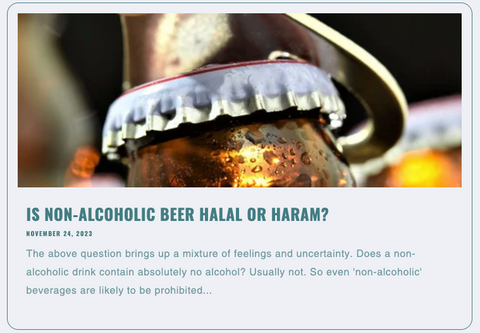Are you looking for sober curious books, podcasts and resources to inspire you on your journey of self-discovery? Well, we’ve got you covered.
Below, you will find a list of the best sober curious books, podcasts, apps, blogs, YouTube channels and community support groups that are making waves in the sober community.
At Drydrinker, we believe in the power of community and partner with dynamic influencers and affiliates who share our vision. So, let’s connect the dots and discover top-level resources for giving up alcohol that will inspire you on your journey.
The Benefits of Exploring Sober Curiosity
The benefits of exploring sober curiosity are endless; it’s a gateway into self-discovery and living a life that is aligned with your true values.
Sober curious benefits include:
- Increased focus, better sleep & enhanced productivity
- Being fully present and experiencing deeper connections
- Improved physical and mental health
- Increased awareness and stronger boundaries
- Experiencing genuine moments of success & fulfilment
- Getting to know yourself on a deeper level
- Connecting with new people
- Saving money/having spare money
- Increased energy levels
- Hangover-free weekends!
Exploring sober curiosity also gives you the freedom to make choices. If you fancy a pint, you can still have a pint. It’s simply about becoming aware of your drinking habits, the feelings and behaviours that drive these habits, and noticing the ‘why’ behind your drinking patterns.
Ultimately, once you become aware of these patterns, you have access to the most powerful version of yourself - alcohol no longer reigns your feelings, behaviours and social interactions, you do. This is the key to long-term success.
The Best Sober Curious Resources in 2024
There are many inspiring sober curious resources to tap into in 2024, from the book ‘Sober Curious’ by Ruby Warrington to apps such as ‘Reframe.’ So, let’s explore the best podcasts for sober curious minds, as well as books, blogs, apps and more!
The Best Podcasts for Sober Curious
Sober Awkward with Vic & Hamish
A hilarious podcast featuring real-life, honest and humiliating stories that will have you in stitches. Listen to Vic and Hamish as they shed light on relatable sober experiences and teach you how to survive and thrive through awkward situations. Light-hearted and humorous, this podcast brings fun to non-alcoholic frolics!
The Sober Effect with Kate & Steph
A deep dive into the ripple effects of alcohol and sobriety; exploring relationships, sober emotions, navigating grief, ADHD, creativity, brain chemistry, nutrition, spirituality and more! Join ex-drinkers Kate and Steph as they chat about relationships with partners, friends, doctors and themselves, bringing light to the challenges, changes and positives of sober living.
They Think It’s All Sober with Jamie and Tom
An uplifting, insightful and energising podcast sharing live interviews with musicians, artists, influencers and athletes who cut down on alcohol in their lives. Jamie and Tom share what drives and motivates them to live a sober lifestyle and invite psychotherapist, David Gibbs, to join their discussions and give professional advice. Listen to explicit experiences with professional truth, and learn how to navigate the wildest of adventures in a sober state.
The Best Books for Sober Curious
Here is our list of best books for giving up alcohol, considering sobriety or a sober curious lifestyle. There is something for everyone, with each book having its own unique style and grains of wisdom.
Sober Curious by Ruby Warrington
A thought-provoking book that explores the wonders waiting for us on the other side of alcohol. A witty journey and actionable handbook that will support you in transforming your relationship with alcohol. As a leading voice in the sober curious movement, Ruby shares how to feel more alive, embrace unexpected joy, inspiration, confidence and connection and live your most fulfilling life.
This Naked Mind by Annie Grace
A scientific exploration of the psychological and neurological components that drive alcohol consumption. Featuring the latest research, this book shares surprising truths about cultural, social and industry factors that support dependency on alcohol and offers long-lasting solutions that will change the way you feel about drinking.
Sober on a Drunk Planet by Sean Alexander
The first in a three-part series, this book teaches you how to reframe the idea of ‘giving up alcohol.’ It shares the eight areas of life that can exponentially improve when you drink less alcohol, from losing weight and gaining muscle to improving your finances. Learn how to navigate a sober lifestyle whilst experiencing shortcuts to happiness, health and increased financial freedom.
The Best Websites, Apps and Blogs for Sober Curious
Now, let’s step into the world of blogs and the best apps for quitting alcohol or reducing the amount that you consume.
Drydrinker Blog

Our encouraging and witty blog explores various topics around non-alcoholic beverages, focusing on providing guidance, insights, and recommendations for enjoying a sober lifestyle. You can find a variety of posts ranging from functional wellness drinks to mocktail recipes, curated lists of the latest non-alcoholic drinks and learn how to have more fun without alcohol!
Reframe App
Reframe the way you think and drink through this neuroscience-based, sober curious app. An evidence-based alcohol reduction program developed by leading experts in the realms of psychology and neuroscience. It features a neuroscience-based reduction program, a personalised drink tracker, a toolkit with games and meditations to beat cravings, in-depth courses and 24/7 private community support.
The Best YouTube Channels for Sober Curious
TEDx Talks
A powerful platform that allows individuals and communities to share ideas in the form of short, powerful talks on a wide range of topics, including sobriety. Check out topics such as ‘Sobriety Rocks,’ ‘Gray Area Drinking’ and ‘The Power of Addiction and the Addiction of Power’ and learn from engaging speakers from all walks of life.
Getting Sober …Again
Practical tips to embrace a sober lifestyle, presented with humour and humility. Watch videos such as ‘The Best Advice for Early Sobriety! 22 Tips’ and ‘How to Get Sober on Your Own in 30 Days.’ Also, learn about health benefits such as reducing your biological age, improving sleep quality and stabilising your mood.
The Best Community and Support Groups for Sober Curious
Sober Socials

A fun and friendly group that offers online news, events and community connection for the sober and sober curious, as well as in-person meet-ups and events. Find the support you need in a variety of forms, and explore events such as SoBar Socials, London Alcohol-Free Comedy Clubs and Sober SunGay Lunches.
Sober Girl Society
As the largest community for sober and sober curious women, you will be sure to find useful tips, resources and events at Sober Girl Society. Join their Instagram-based community for daily doses of inspiration, or check out in-person events ranging from bottomless boozeless brunches to sober sweat dance classes.
Sober Book Club
An online community that supports each other through sober and sober curious journeys whilst reading different quit-lit books each month. Join the club on the last Sunday of every month at 5 pm GMT and explore the best books for sober curious minds.
Concluding Thoughts
The above resources aim to uplift and inspire you; there is a whole world of exciting opportunities and benefits waiting for you on your sober curious journey!
So, which book, podcast or resource are you going to check out first?
Comment below, we would love to hear from you.
If you would like to find out more about the health benefits of alcohol, you can check out our further resources here, as well as natural, plant-based, functional non-alcoholic alternatives. Or simply stay in the loop and follow us @drydrinker












